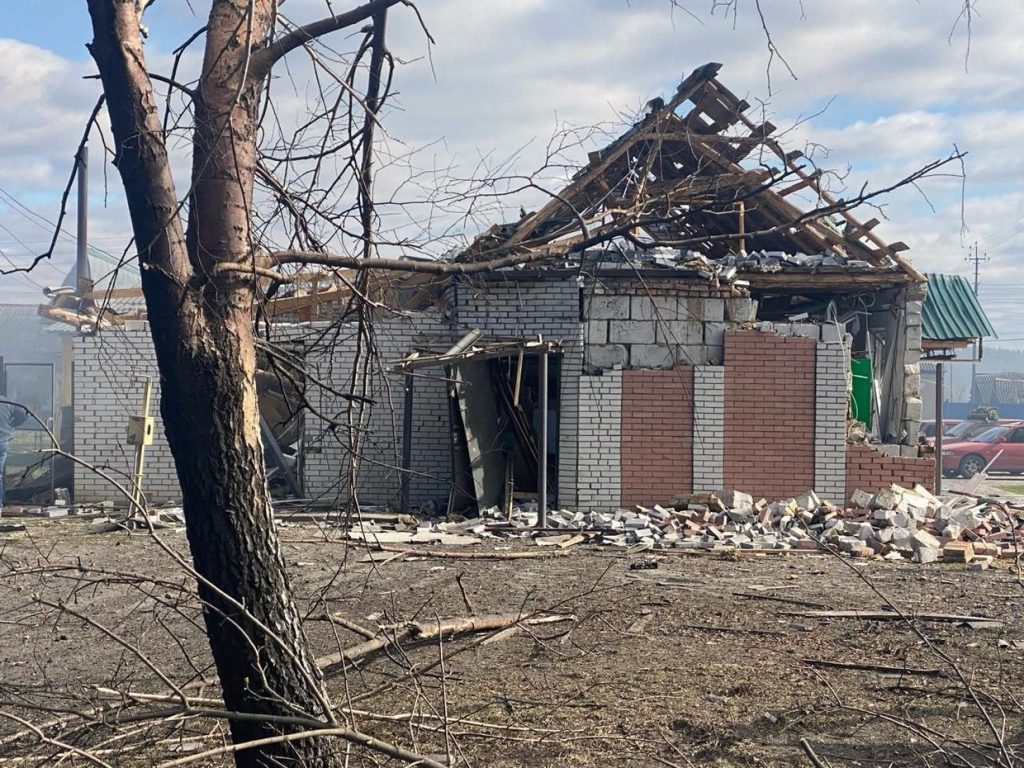Russian forces launched a series of attacks on Sumy Oblast in Ukraine, targeting various communities including Yunakivka, Bilopillia, Krasnopillia, and Velyka Pysarivka. The attacks included missile strikes and drone bombings, resulting in casualties and injuries. The town of Velyka Pysarivka, situated directly on the Russia-Ukraine border, bore the brunt of the assault with 26 explosions recorded in the area. The ongoing attacks have escalated in recent weeks, prompting authorities to step up evacuation efforts in the town, with approximately 300 residents already evacuated. Shelling has become a daily occurrence for vulnerable border settlements in northeastern Ukraine, with multiple attacks reported each day.
In a significant development, Ukraine carried out a retaliatory strike on a Russian drone factory located 1,300 kilometers away in Tatarstan Republic, Russia. This marked the first time since the start of the full-scale invasion that Ukraine targeted facilities in Russia. Overnight drone attacks targeted production facilities in the cities of Yelabuga and Nizhnekamsk in Tatarstan. The distance of the strike highlights Ukraine’s ability to respond to Russian aggression beyond its borders, signaling a shift in tactics to disrupt Russian military operations.
The intensification of Russian attacks on Sumy Oblast underscores the vulnerability faced by communities near the Ukraine-Russia border. The targeting of civilian areas and infrastructure in these border regions has resulted in casualties and destruction, with residents living under constant threat of bombardment. Despite efforts to evacuate residents from heavily affected areas like Velyka Pysarivka, a significant number of individuals remain at risk, highlighting the challenges faced by authorities in ensuring the safety and protection of civilians in conflict zones.
The increased destructiveness of Russian attacks in recent weeks has raised concerns about the humanitarian situation in Sumy Oblast and other border regions of Ukraine. The use of various munitions including missiles, drones, and artillery has exacerbated the civilian suffering, with reports of civilian casualties and injuries mounting. The ongoing conflict has forced thousands of people to flee their homes in search of safety, adding to the growing number of internally displaced persons in Ukraine. The need for humanitarian assistance and support for affected populations is critical to address the immediate needs of those impacted by the conflict.
The targeting of civilian areas and critical infrastructure in Sumy Oblast is a violation of international humanitarian law, with Russian forces indiscriminately attacking populated areas and endangering the lives of civilians. The deliberate targeting of civilian populations constitutes a war crime and underscores the disregard for human life and dignity in the conflict. The international community has a responsibility to condemn such actions and hold those responsible for violations of international law and human rights to account. Support for independent journalism and reporting on the ground is crucial to shed light on the situation and advocate for justice and accountability.
As the conflict in Ukraine continues to escalate, the importance of supporting independent journalism and reporting from the frontlines cannot be overstated. Journalists and media outlets play a crucial role in documenting the impact of the conflict on civilians, exposing human rights abuses, and holding perpetrators accountable. By joining the fight to support independent journalism in Ukraine, individuals can contribute to the dissemination of accurate information, raise awareness about the humanitarian crisis, and advocate for peace and justice in the region. Your support can make a difference in amplifying the voices of those affected by the conflict and ensuring that their stories are heard on a global scale.


